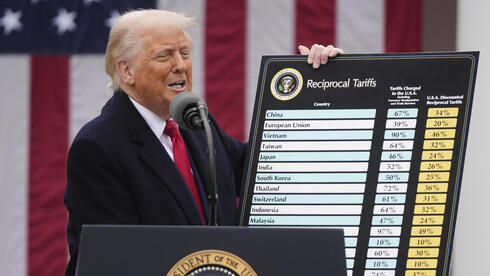1 View gallery


US President Donald Trump reveals his new sweeping tariff policy, April 3, 2025
(Photo: AP Photo/Mark Schiefelbein)
The global economy of 2025 is built on interdependence. Supply chains are international, not local. American automakers rely heavily on parts and raw materials from overseas—often close to 50% of a vehicle’s components. Even foreign automakers have long been manufacturing within the U.S. to reduce costs. Tariffs not only raise prices for consumers; they also hurt the very companies they are meant to protect.
This is not a temporary turbulence—it’s the early sign of a broader economic doctrine rooted in isolationism, ego-driven policy and a nostalgia for a world that no longer exists. If this approach continues and spreads, it could undermine one of the core engines of prosperity in recent decades: global cooperation through open markets.
 Dr. Amit Serusi
Dr. Amit SerusiWhat we are witnessing is not industrial pride—it is industrial fantasy. A world where countries turn inward, retaliate with tariffs and abandon international trust is a world more vulnerable to recession, inflation and prolonged instability. Investors flee uncertainty, and what economies need most—especially in volatile times—is stability and confidence.
Strong economies are not built through confrontation and disruption. They are built on trust, partnerships and predictable policy. The market plunge is not just a reaction to new tariffs—it is a warning.
We don’t need dramatic declarations or bravado. We need thoughtful, moderate leadership with long-term vision—leaders who understand that in today’s global economy, cooperation is strength and isolation is weakness.




